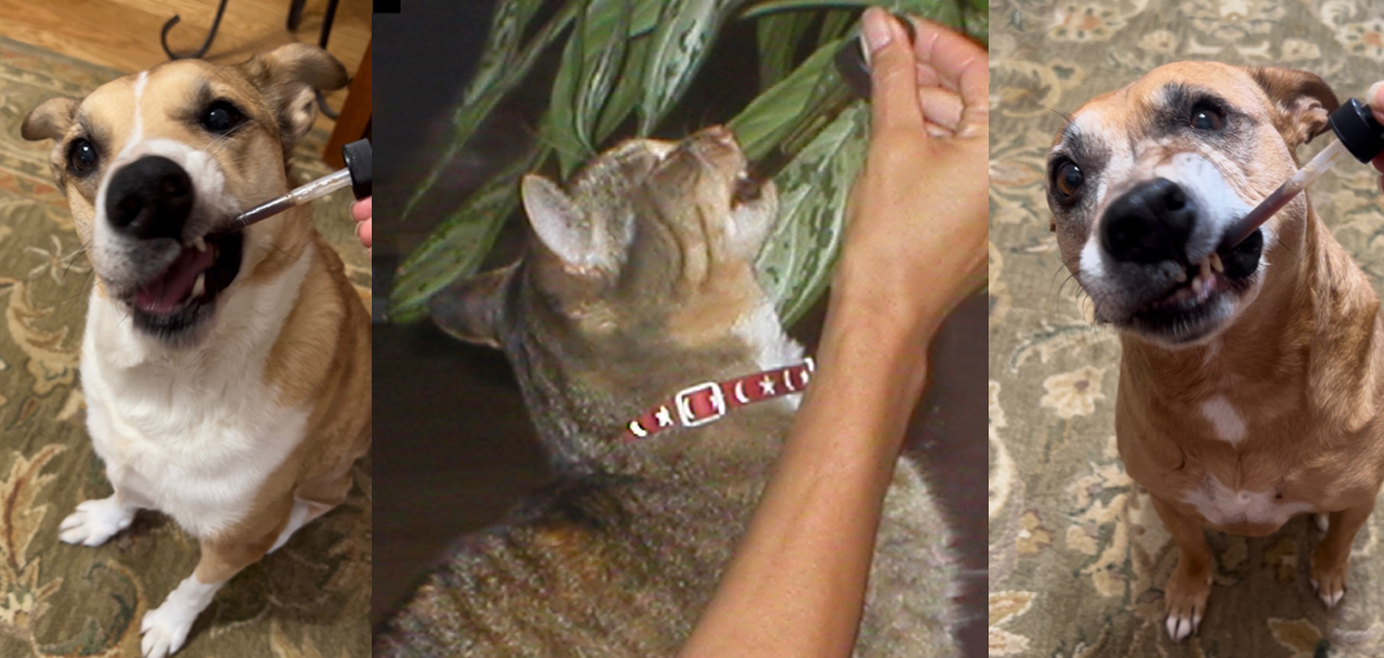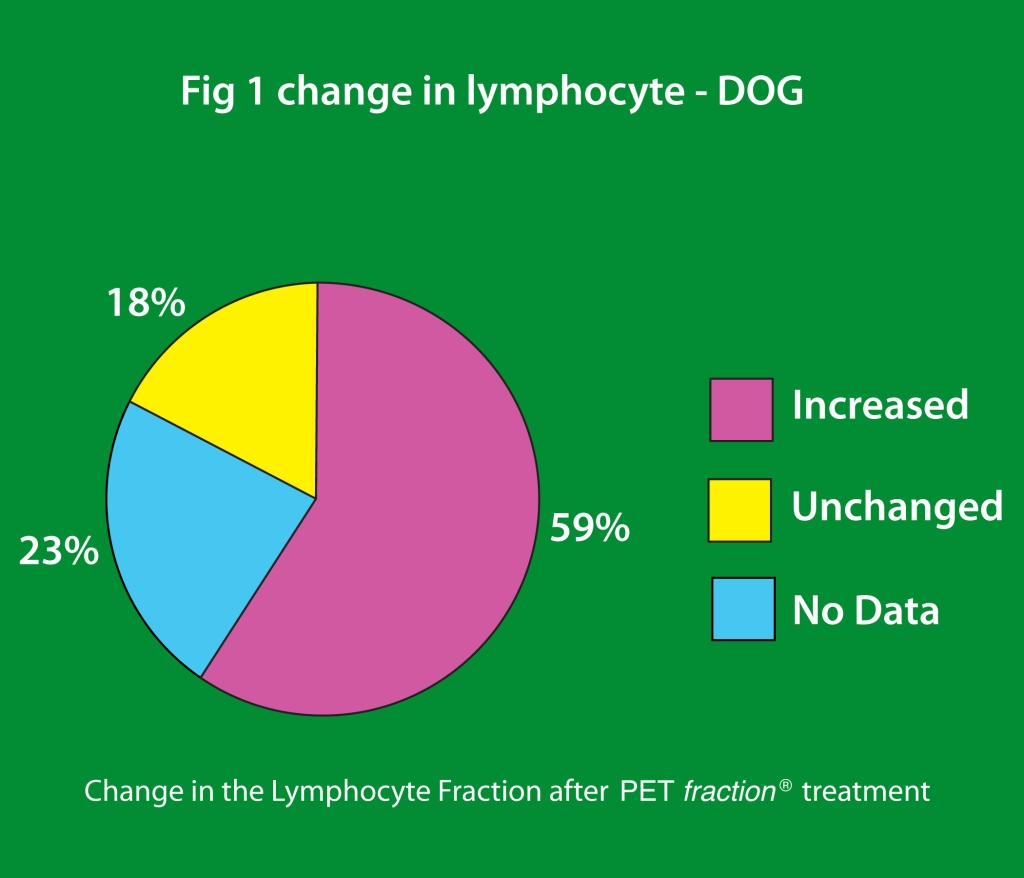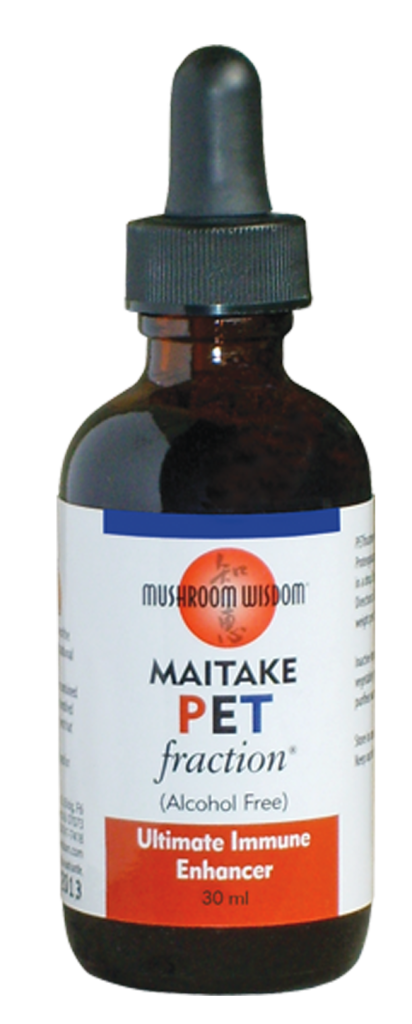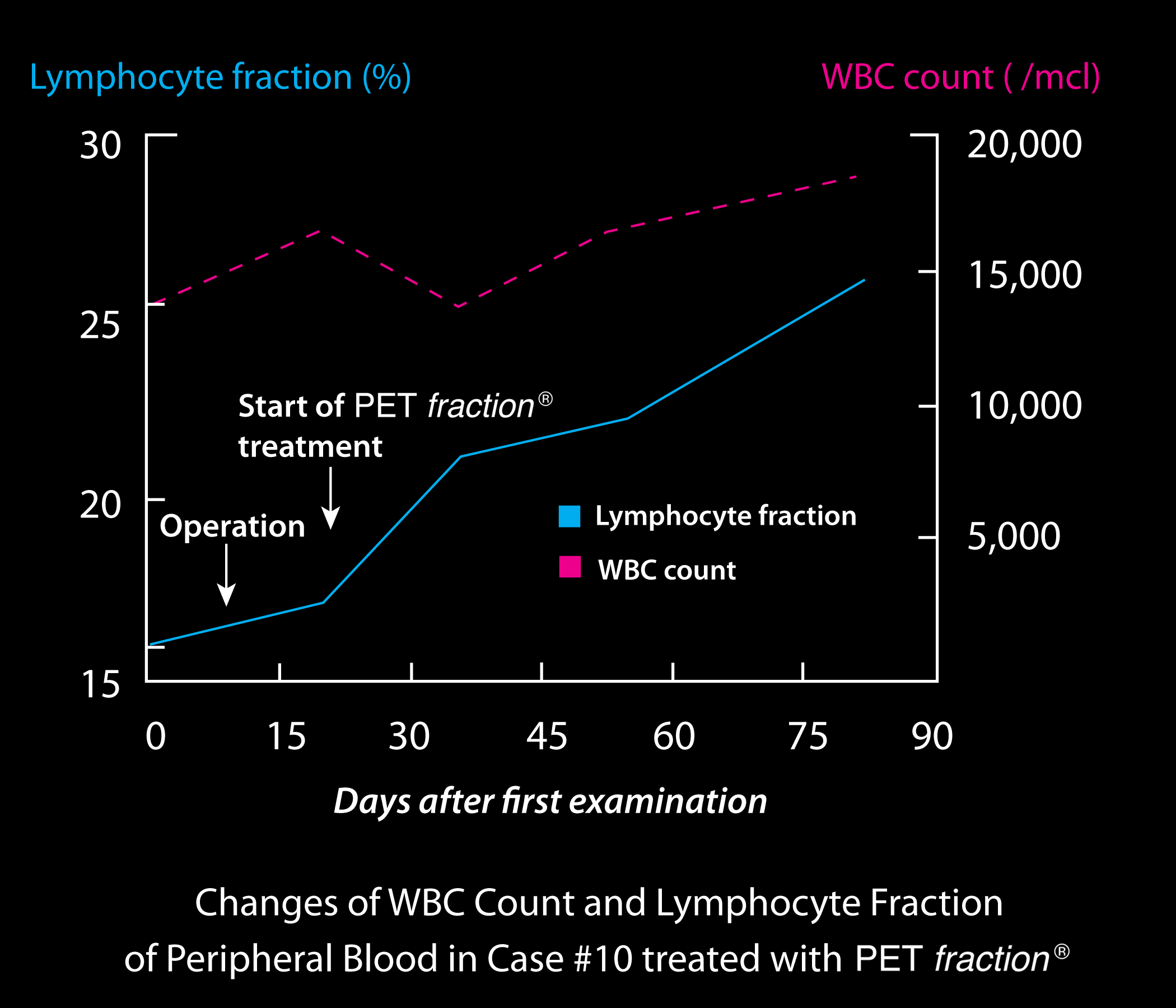Don’t Forget Your Fur Babies!
One of the things the last few years has taught us, or at least reinforced, is the importance of maintaining a healthy immune system. But, it’s not just our immune system we need to be attentive to, it’s our fur babies’ immune health as well. Our dog and cat family members are susceptible to immune stresses and strains pretty much the same way we are. A poor diet, stress, lack of exercise,…, all can negatively impact our fur baby’s resistance and resilience. Case in point, a recent report found that some germs can be passed back and forth from us to dogs and vice versa. And then there’s always the cancer concerns. About one in four dogs will develop cancer at
some time in their life. The rate doubles for dogs over the age of 10. The rate of cancer in cats is only a little less bad, they develop cancer at a rate of 1 in 5. Dogs and cats live alongside us and are therefore exposed to similar environmental factors and influences that impact their immune health and function. And just as it is with humans, there are helpful allies from the mushroom world that can aid in supporting a healthy, resilient immune system.

“It’s Maitake Time”
“It’s Maitake time” is a daily refrain around our house. Surprisingly to anyone who has familiarity giving medicines or supplements to their dog, or
especially a cat, they come running, ready and eager to take their Maitake, in this case it is the pet version of the Maitake D-fraction®, called PET fraction®. I imagine, since you are on this mushroom website reading this, you are likely familiar with the Maitake D-fraction® and its array of benefits for supporting healthy immune function.* The same can be said for the PET fraction with our fur babies. In fact, PET fraction is the same as the human liquid Maitake D-fraction Pro 4X, the only difference being it has a plastic
dropper for safety purposes in case your pet bites down on the dropper. And, like the D-fraction, PET fraction is backed by research.
For those who may not be familiar with the Maitake D-fraction, it is a unique beta-glucan that supports our immune system and has been shown
to increase numbers of immune cells, activity of these cells, along with supporting overall immune function.*
Animals and Immunity
One type of immune response that animals have when trying to maintain a healthy immune response is called cell mediated or cellular immunity. This
is the protective immune response that does not involve antibodies, rather it is the activation of T cells and the release of cytokines, immune system messengers, in response to an antigen. This is important in that it is essential, when confronting some types of immune challenges, that right part of the immune system is activated so that it can respond effectively. Production of interferon gamma (IFN-γ) or interleukin-2 (IL-2) are indicators of a cellular immune response. Inteleukin-4 (IL-4), interleukin-6 (IL-6), and interleukin-10 (IL-10) increases indicate an inhibition of a cellular immune response. In many unhealthy cases IFN-γ and IL-2 production is inhibited, while IL-4, IL-6, and IL-10 is increased indicating cellular immunity suppression. Stick with me on this more technical stuff, it’ll become clearer as we look at the research.
Summing it up, in healthy dogs we see the expression of IFN-γ and IL-2, while unhealthy animals tend to show expression of IL-6 and IL-10, with
expression of IFN-γ and IL-2 down. This indicates that unhealthy dogs have an inhibition of cellular immunity, the type of immune response that we want to be active in these situations. In healthy dogs we see that cellular immunity is activated. PET fraction comes into play because it has been shown to activate immunocompetent cells, e.g. T-cells, cytotoxic T cells, natural killer cells, and macrophages.*
Clinical Research
 A clinical study was performed at a veterinarian teaching hospital in Japan that included 22 unhealthy dogs. The dogs were given PET fraction along with conventional treatments at a dose of 3 drops per kilo of body weight for over 3 months. They found that the pups took it freely with 1/3 really liking it. Activity levels and appetite were maintained by 96% of the dogs, 50% actually increased body weight, while 41% maintained their weight. The lymphocyte fraction, the cellular immunity part mentioned above, saw increases in 59% of the cases. (see figure 1) In almost all cases, the quality of life was maintained or improved. In 85% of the cases where lymphocytes were observed in the blood, the dogs remained healthy within the 10 month observation period.*
A clinical study was performed at a veterinarian teaching hospital in Japan that included 22 unhealthy dogs. The dogs were given PET fraction along with conventional treatments at a dose of 3 drops per kilo of body weight for over 3 months. They found that the pups took it freely with 1/3 really liking it. Activity levels and appetite were maintained by 96% of the dogs, 50% actually increased body weight, while 41% maintained their weight. The lymphocyte fraction, the cellular immunity part mentioned above, saw increases in 59% of the cases. (see figure 1) In almost all cases, the quality of life was maintained or improved. In 85% of the cases where lymphocytes were observed in the blood, the dogs remained healthy within the 10 month observation period.*
Case Study
An 8 year old Golden Retriever with immune issues and underwent surgery and 4 weeks of conventional treatment along with being given the
PET fraction. The oh-so-important lymphocytes increased with IFN-γ and IL-2 remaining high, while IL-4 and IL-10 disappeared while receiving PET fraction. Thirteen months after the surgery the pup has remained healthy, supporting the need for a balanced immune response.*
Canine Cell Culture Study
Dr. Konno, at the New York Medical College, looked at the impact of PET fraction on the immune system and found that PET fraction was “highly
effective”. He also compared the PET fraction to 4 other commercially available products, culturing each for 4 days and performed each experiment 3 times. He concluded that PET fraction was more effective and was the most potent of the selected products. Lastly, Dr. Konno found that PET fraction can be further potentiated by taking some vitamin C along with it.*
Helpful Ally
 While this research is promising, it does suggest that PET fraction can be a powerful ally in helping our fur babies maintain healthy immune function*. Let me be clear, I am not saying it is a cure, what it is, is a helpful ally for supporting our fur babies’ immune system. What we can say is that there is preliminary research that suggesting the use of PET fraction for supporting a healthy immune response. It is safe, easy to administer, with some really liking it, and has preliminary research supporting its use. Just as it is with people though, the best path is one of prevention, so regular dosing of PET fraction may be a good idea, of course along with a healthy diet, exercise, and of course lots of luvin.*
While this research is promising, it does suggest that PET fraction can be a powerful ally in helping our fur babies maintain healthy immune function*. Let me be clear, I am not saying it is a cure, what it is, is a helpful ally for supporting our fur babies’ immune system. What we can say is that there is preliminary research that suggesting the use of PET fraction for supporting a healthy immune response. It is safe, easy to administer, with some really liking it, and has preliminary research supporting its use. Just as it is with people though, the best path is one of prevention, so regular dosing of PET fraction may be a good idea, of course along with a healthy diet, exercise, and of course lots of luvin.*


